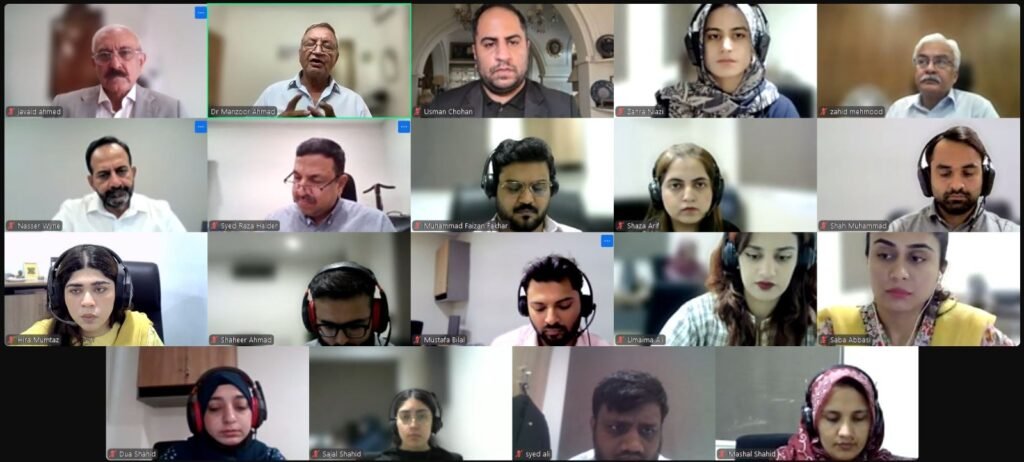
‘Neither Iran nor Israel can sustain a protracted conflict, and any deeper US involvement would have risked spiralling costs’
Islamabad : This was the consensus at the webinar on ‘The Economic Fallout of Israel-Iran Conflict’ organised by the Centre for Aerospace & Security Studies (CASS), Islamabad. The distinguished panel of experts, including Dr Einar Tangen, Senior Fellow at the Taihe Institute, Beijing; Dr Manzoor Ahmad, Senior Fellow at the Pakistan Institute of Development Economics (PIDE), Islamabad; and Dr Usman W. Chohan, Advisor at CASS, Islamabad, analysed the far-reaching economic consequences of the Israel-Iran conflict, offering critical insights into global market disruptions, energy security, and regional stability. The webinar was moderated by Research Associate Zahra Niazi, with introductory and concluding remarks by Air Marshal Javaid Ahmed (Retd), President of CASS, Islamabad.
The panel welcomed the Iran-Israel ceasefire as a timely measure that averted serious global and regional energy and security repercussions, especially in light of the threat of a Strait of Hormuz closure. Dr Einar Tangen was of the view that the world was very near the edge of a precipice, not by accident, but propelled by the reckless blindness of powerful actors, most notably the United States and Israel. He said that their unilateral actions in Iran and ‘disregard for established norms had shattered the fragile foundations of global security’, forcing vulnerable nations towards the desperate, catastrophic ‘solution’ of nuclear weapons. He further stressed that the zero-sum path in which security was seen as terror and strength through the deliberate insecurity of others, only offered perpetual fear and the certainty of eventual global catastrophe. Dr Tangen hoped that instead of Western short-sightedness, aggression, and self-interest, middle powers like Pakistan, would embrace the path of mutual security, collaborative development, and respect for sovereignty best articulated by China’s vision.
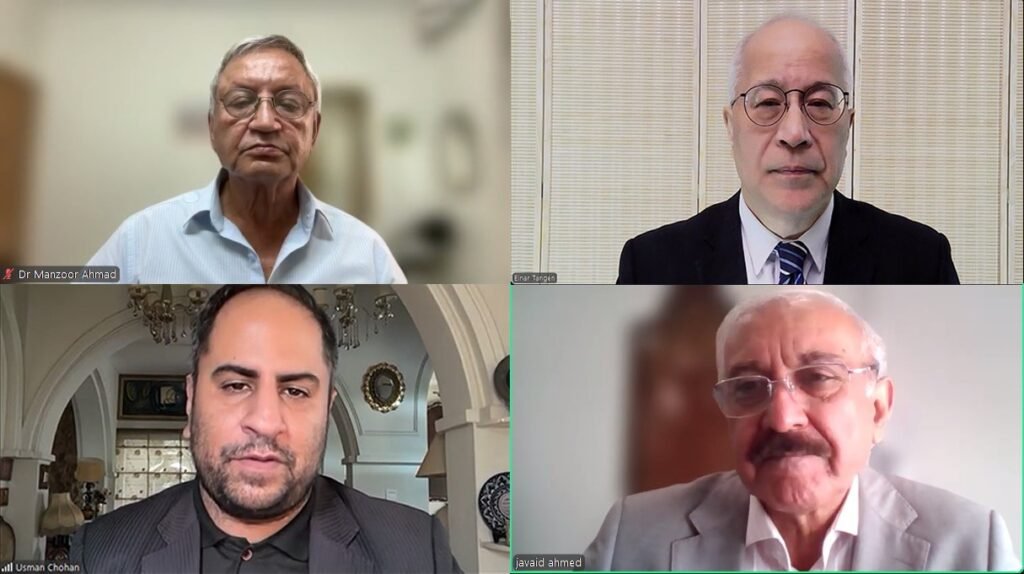
Dr Manzoor Ahmad discussed the potential economic impact of a prolonged Iran-Israel conflict on Pakistan. Reflecting on how Pakistan has tackled similar crises before, he pointed out that knee‑jerk reactions tend to make things worse, drive up inflation, unemployment, and trade gaps. ‘When international crises hit,’ he said, ‘we’ve got to learn how to deal with them proactively.’ He argued for forward‑thinking domestic policy changes to build stronger resilience against outside shocks.
Dr Usman W. Chohan provided a comprehensive analysis of both the direct economic costs of the Israel-Iran conflict, indirect costs and regional spillovers and specific impacts on Pakistan. On the direct costs, he noted that Israel had spent about USD 0.7-1 billion per day on military operations and rebuilding, so its deficits had widened, labour shortages emerged, and civilian spending and tech exports were now suffering. Meanwhile, Iran’s 1.7-2.2 mbpd ‘shadow’ exports were persisting, but strikes on energy assets would now deepen its power crises, drive inflation to 40%, and channel funds into fuel smuggling and IRGC proxies. Pakistan, he shared, had felt the Iran-Israel tensions acutely through a surge in fuel smuggling and broader macroeconomic pressures. He pointed out that fuel already accounts for about 30% of Pakistan’s import bill, and with 70% of oil transiting the Strait of Hormuz, Brent crude at USD 90–100 per barrel could have ballooned the current‑account deficit, weakened the rupee, stoked inflation further, and shaved an estimated 0.5-1.5 percentage points off the GDP.
The session was followed by an interactive question and answer session from participants from the UK and Pakistan.
Concluding the session, President CASS, Air Marshal Javaid Ahmed (Retd.), reiterated the urgency of securing Pakistan’s energy infrastructure and diversifying strategic partnerships to mitigate external shocks since separating economic and geopolitical aspects in conflict situations was becoming increasingly difficult.
Sohail Majeed is a Special Correspondent at The Diplomatic Insight. He has twelve plus years of experience in journalism & reporting. He covers International Affairs, Diplomacy, UN, Sports, Climate Change, Economy, Technology, and Health.


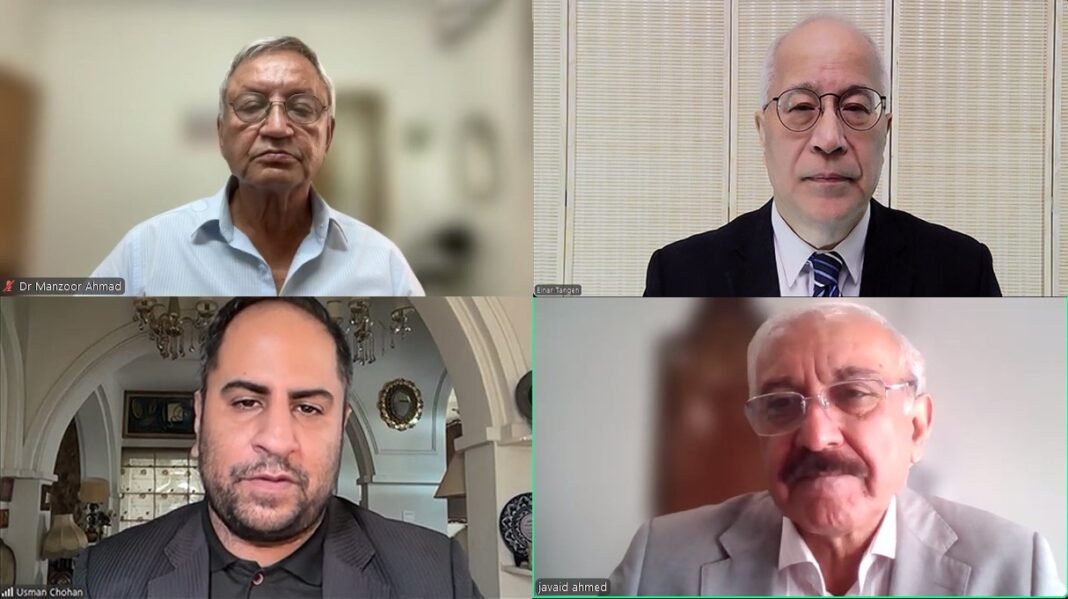

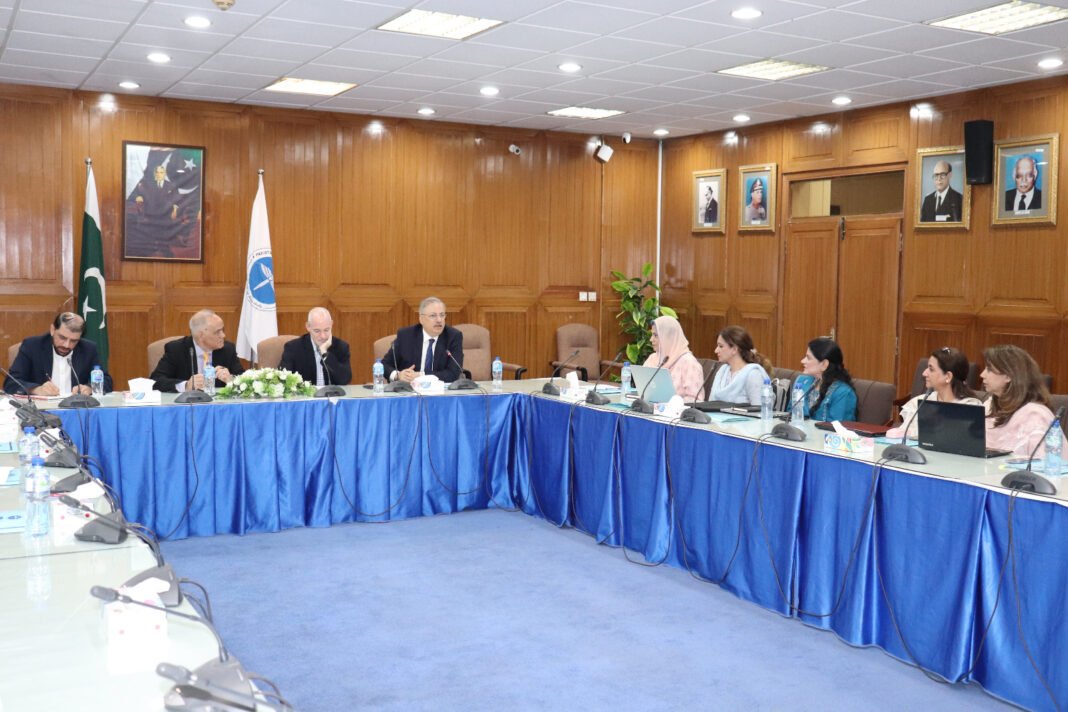
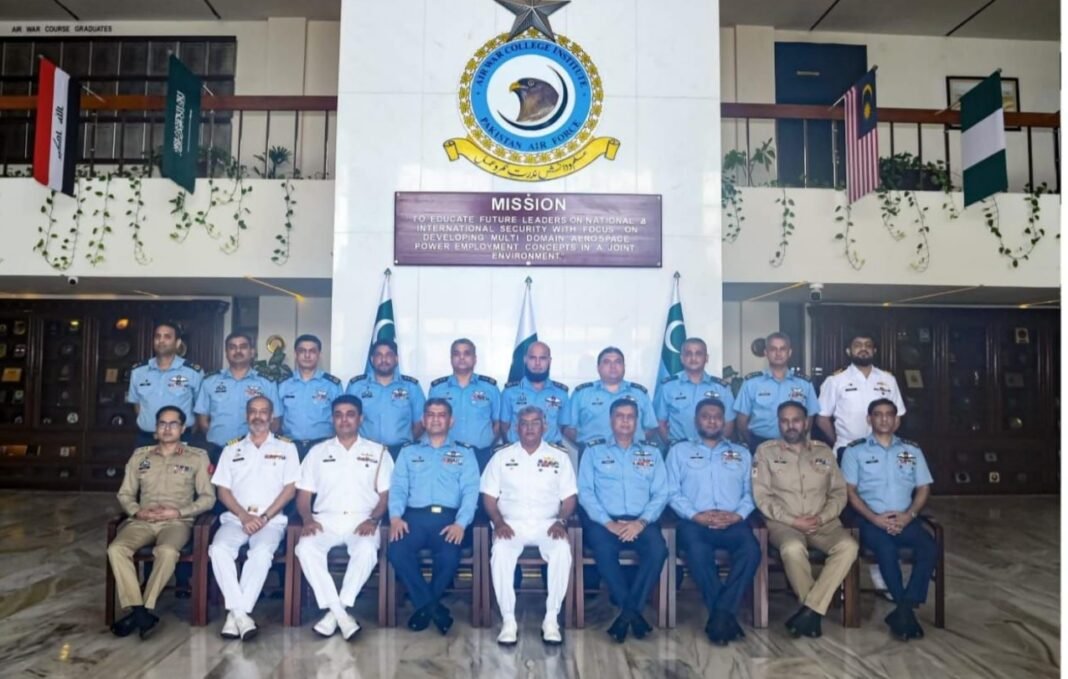
![logo-1[1]](https://globalnewspakistan.com/wp-content/uploads/2025/01/logo-11-e1737618310315-300x187.png)